New program to foster research collaboration between academic faculty and Georgia Tech Research Institute scientists
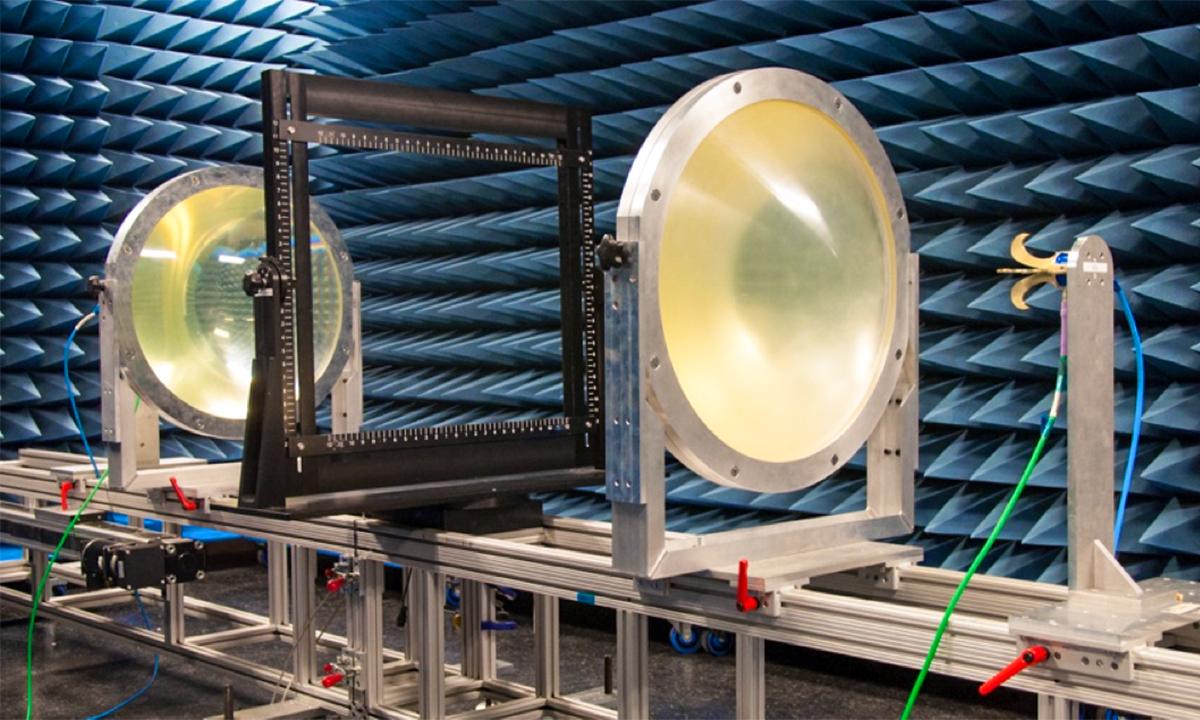
Some of the most complex problems facing U.S. national security are tackled every day at Georgia Tech, with research ranging from cyber forensics for adversarial attacks to health care tools that monitor soldiers in the field. Now, engineering faculty and researchers from the Georgia Tech Research Institute (GTRI) are partnering in a new program that supports Georgia Tech’s strategic defense technology priorities.
The inaugural GTRI Graduate Student Fellowship Program is a competitive program for high-caliber Georgia Tech graduate students working in GTRI strategic research areas. Academic faculty and GTRI researchers worked together to create proposals that closely aligned with GTRI’s strategic initiatives. Soon, graduate students will be recruited to work on these research projects with fully funded fellowships.
“GTRI has an important mission to support our nation through solving some of the hardest problems in national security, and we believe that we are best able to achieve our mission when we fully and broadly leverage the deep expertise that exists in the academic units at Georgia Tech,” said Mark Whorton, chief technology officer at GTRI. “It is central to our identity and necessary for our success to fully leverage the talent within the academic units and elevate our reputation as a leading university-affiliated research institute.”
“It is central to our identity and necessary for our success to fully leverage the talent within the academic units of Georgia Tech and elevate our reputation as a leading university-affiliated research institute.” - Mark Whorton, CTO, GTRI
The program will build upon existing relationships between academic faculty and GTRI researchers, further developing relationships and long-term research collaborations that will advance projects related to national security.
“This is a unique program that pairs academic faculty with technology researchers to tackle the challenges of national security,” said Krista Walton, associate dean for research and innovation in the College of Engineering. “We are excited to partner with GTRI and offer the vast knowledge base of our engineers in order to enable research that advances our national security efforts.”
Faculty Research Pairs and Proposals
Across the eight selected fellowship awards, researchers from GTRI labs will co-advise students along with a College of Engineering faculty member.
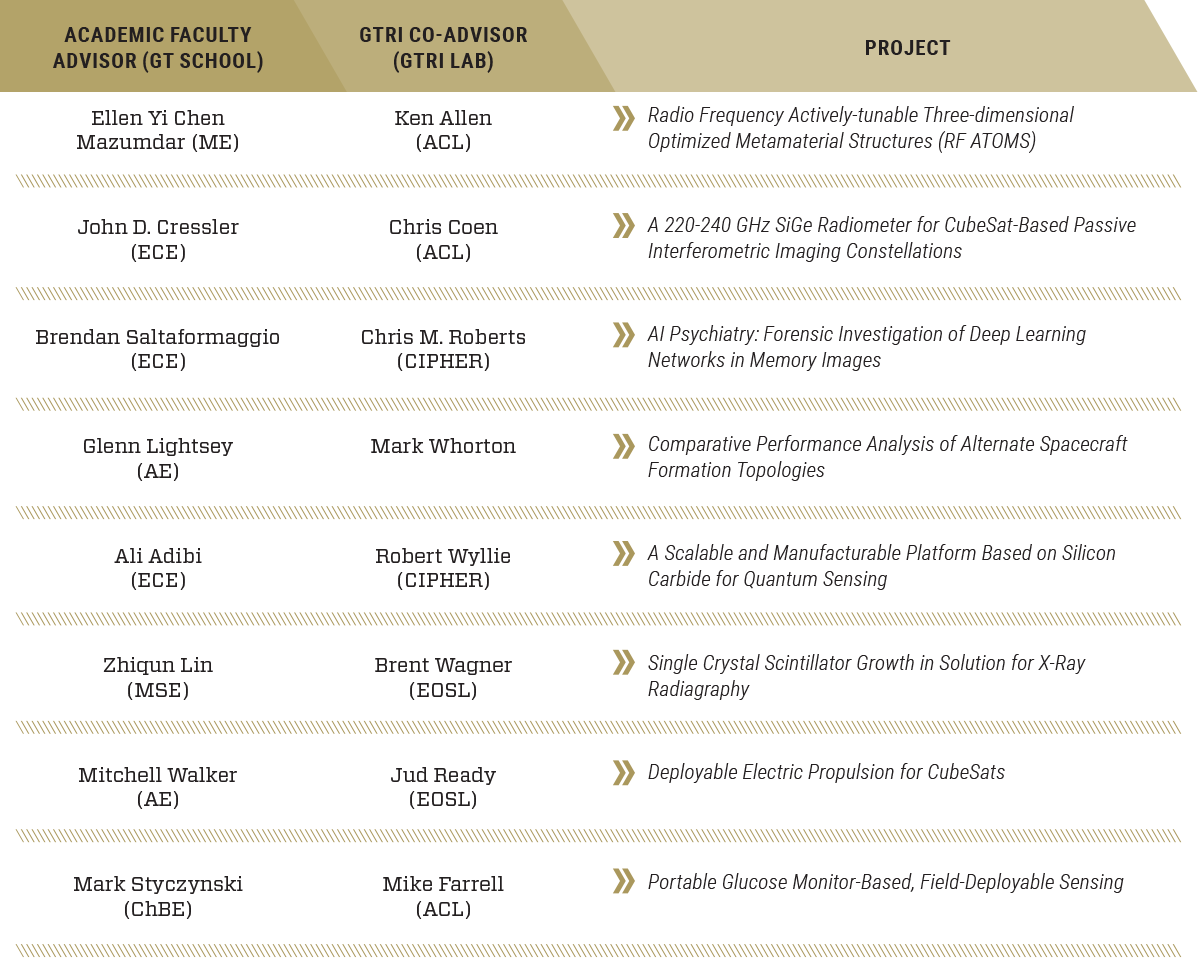
Advanced Concepts Laboratory
Who: Ellen Yi Chen Mazumdar & Ken Allen
What: Radio Frequency Actively-tunable Three-dimensional Optimized Metamaterial Structures (RF ATOMS)
Why it matters: Recent innovations in radio frequency devices, such as 5G, and government spectrum selloffs have generated unique national security problems, including congested network environments. In order for radio frequency devices to operate effectively, novel metamaterials and tunable filtering techniques need to be developed.
“This exciting fellowship opportunity will allow Georgia Tech and GTRI units to develop closer relationships, leading to more synergistic collaborations on future programs,” said Mazumdar, assistant professor in the School of Mechanical Engineering. “This project will also allow us to leverage the amazing fundamental and applied research that is being conducted across the institute to solve important national security problems related to radio frequency metamaterials.”
“My hope in serving as a co-advisor in the Fellowship Program is to grow our workforce and help cultivate the next generation of talent in national security,” said Allen, senior research engineer at GTRI.
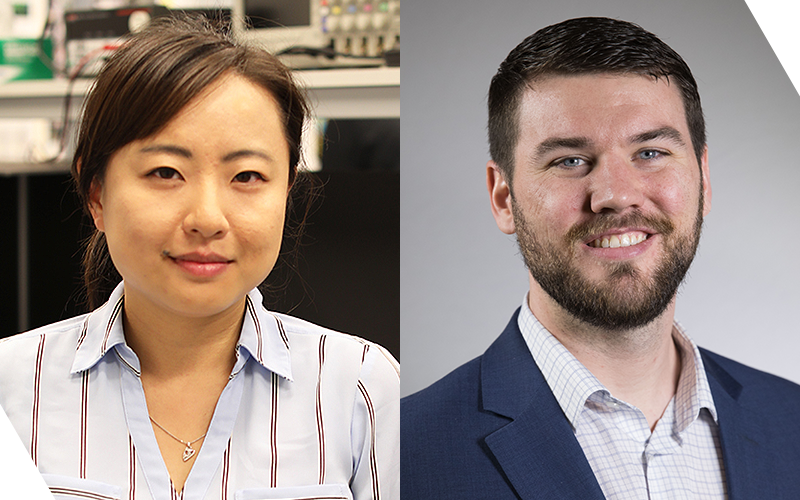
Who: John Cressler & Chris Coen
What: A 220-240 GHz SiGe Radiometer for CubeSat-Based Passive Interferometric Imaging Constellations
Why it matters: Novel integrated circuits will enable all-weather, near real-time, passive imaging of the Earth from space. The technology has the potential to improve climate models that help confront climate change, which the Department of Defense has identified as a critical national security threat.
“I am honored to take part in the Georgia Tech-GTRI Fellowship program,” said Cressler, professor in the School of Electrical and Computer Engineering. “My team has had a long-term, close synergy with GTRI, and working with graduate students to achieve ground-breaking research is my life’s vocation and my greatest joy. We have a long legacy of space-related research, and this project continues that fine tradition.”
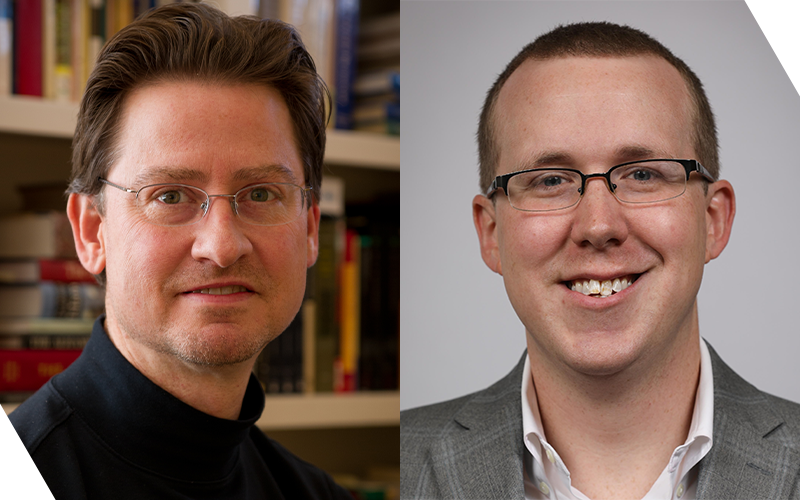
Who: Mark Styczynski & Mike Farrell
What: Portable Glucose Monitor-Based, Field-Deployable Sensing
Why it matters: This device will contribute to the overall future objective of the Department of Defense for building the capability for remote health monitoring of soldiers in the field. The real-time physiological health monitoring capability could significantly improve overall soldier health and save lives in emergency situations.
“As an applied biological researcher at GTRI, we exist to provide real solutions to problems faced by the Department of Defense,” said Mike Farrell, principal research scientist at GTRI. “Collaborations like this with Georgia Tech academic labs provide the exciting opportunity to translate and apply advanced engineering concepts to these problems.”
“I hope to expose our graduate students to the great work done at GTRI and inspire them to consider such an organization for a future career path,” said Mark Styczynski, associate professor in the School of Chemical & Biomolecular Engineering. “This will help us advance exciting new ideas and projects at the leading edge of our research. Since we focus mostly on the biological side, interfacing with the device and other expertise at GTRI will truly elevate what we can do in our projects.”
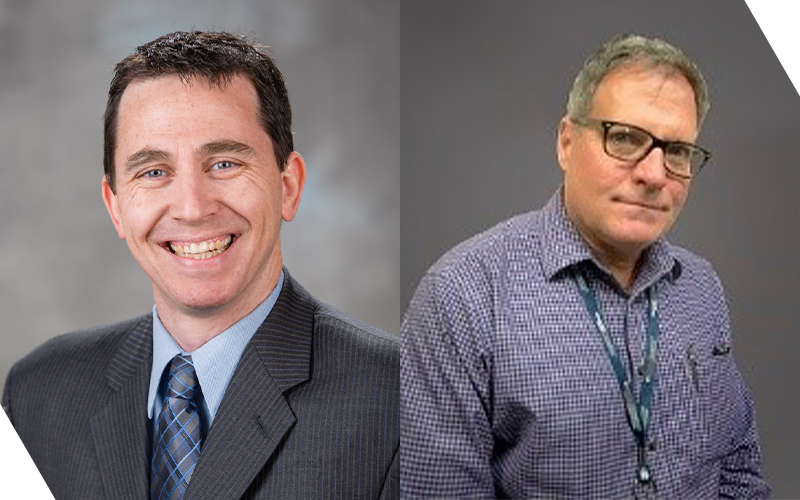
Cybersecurity, Information Protection, and Hardware Evaluation Research Laboratory
Who: Brendan Saltaformaggio & Chris M. Roberts
What: AI Psychiatry: Forensic Investigation of Deep Learning Networks in Memory Images
Why is matters: This research will develop Artificial Intelligence Psychiatry, a pipeline of memory image forensics and deep learning model investigation techniques that will enable the investigation of in-the-field failures of a unique Deep Learning model from a device. AI Psychiatry will provide investigators with evidence of the cyberattack and help craft a patch (to keep data safe).
“This is an exciting opportunity, especially for the field of cyber forensics,” said Saltaformaggio, assistant professor in the School of Electrical and Computer Engineering. “GTRI encounters all types of mission-critical deployments of AI, and investigating attacks against these systems is more crucial than ever before. Working together, we can develop cyber forensic techniques that both push the research frontier and make a real difference in the United States' cyber forensic capabilities.”
“Having the chance to collaborate across organizations and disciplines is something that will always make you and your team stronger,” said Roberts, senior research engineer at GTRI. “With this diversity comes unique perspectives and approaches to solving problems that aid in the research process.”
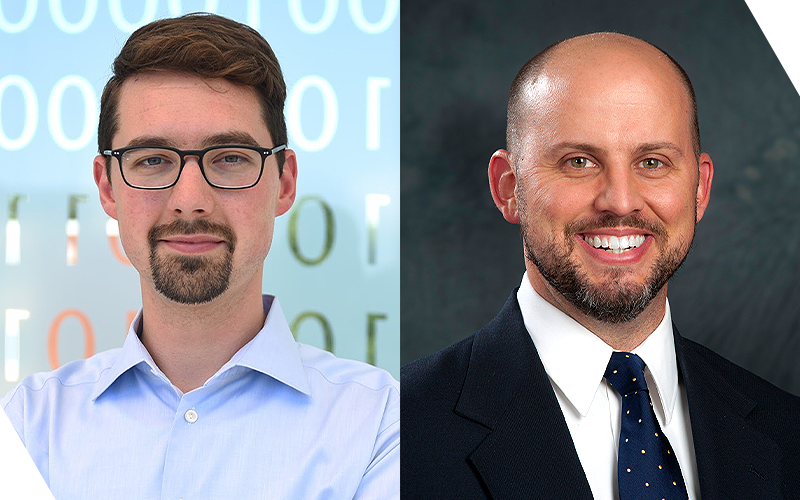
Who: Ali Adibi & Robert Wyllie
What: A Scalable and Manufacturable Platform Based on Silicon Carbide for Quantum Sensing
Why it matters: This proposal is focused on realization of a chip-scale solid-state platform for quantum photonic devices and systems based on fabricating and using quantum defects in Silicon-Carbide (SiC) in conjunction with powerful reconfigurable integrated nanophotonics structures. The result would be a powerful tool for designing new quantum sensors with enhanced sensing properties, a capability with numerous Department of Defense applications and in alignment with the Department’s Quantum System modernization priority.
“Our project is in line with a national trend towards ‘Quantum Engineering,’ where interdisciplinary collaborations of physicists, applied scientists and engineers come together to make practically useful quantum systems,” said Wyllie, senior research scientist at GTRI. “This is a great direction that highlights the strengths of GTRI and Georgia Tech broadly, and our research groups specifically.”
“Training and working with graduate students are probably the most exciting parts of our work,” said Adibi, professor in the School of Electrical and Computer Engineering. “They are smart and motivated, and mature into leadership of their research areas. We hope that the multidisciplinary nature of this project and the complementary expertise of us as co-PIs will provide a wonderful opportunity for the students to contribute immensely to this exciting field.”
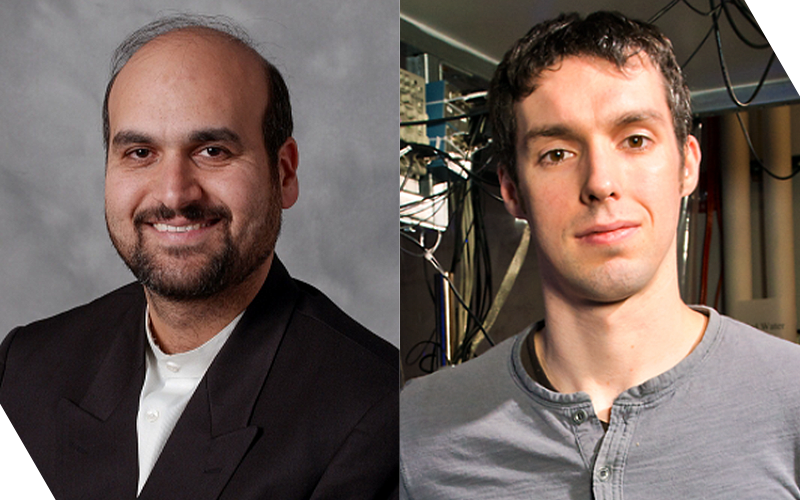
Electro-Optical Systems Laboratory
Who: Zhiqun Lin & Brent Wagner
What: Single Crystal Scintillator Growth in Solution for X-Ray Radiography
Why it matters: This project will develop low-cost solution-growth techniques to produce halide perovskite single crystals (SCs) scintillators for X-Ray radiography. Knowledge generated from this project may render the creation of large radiographic imagers for homeland security for inspecting cargo in moving rail cars and trucks.
“Our graduate students will learn how to solution-grow SCs and be exposed to a set of characterization tools to evaluate the quality and performance of SC scintillators,” said Lin, professor in the School of Materials Science and Engineering. “Additionally, this fellowship will allow both the GTRI co-advisor and academic faculty advisor to expand their past collaboration on quantum dots for sensing to perovskite SC scintillators for X-Ray radiography.”
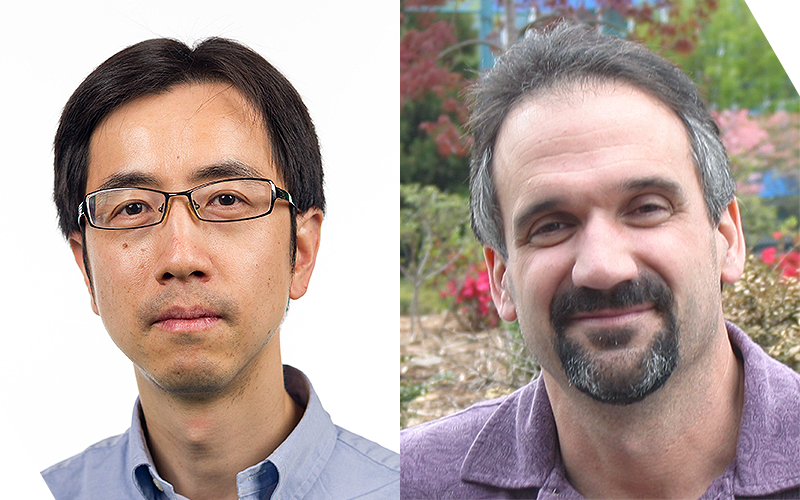
Who: Mitchell Walker & Jud Ready
What: Deployable Electric Propulsion for CubeSats
Why it matters: The proposed effort will utilize carbon nanotube-based cold cathodes to emit electrons via the field effect to ionize xenon gas for electric propulsion of spacecraft. As space is a highly contested environment, this will ensure continued access to space for the U.S.
“The selection of our team and proposal exemplifies the commitment to space-based research by Georgia Tech and GTRI,” said Ready, principal research engineer at GTRI. “Over the years, there has been a gap in joint programs, and this new effort will create fruitful collaborations across many disciplines.”
"Many new missions concepts have been enable by the miniaturization of electronics, enhancements in available power, and reduced launch costs,” said Walker, professor in the School of Aerospace Engineering. “Yet, an optimum propulsion solution to maneuver small groups of satellites that collaborate to perform a mission is not clear. This fellowship will allow us to work with a student to optimize the performance of electric propulsion within the mass and volume constraints of CubeSats.”

Who: Glenn Lightsey & Mark Whorton
What: Comparative Performance Analysis of Alternate Spacecraft Formation Topologies
Why it matters: This research will help mission designers understand what formation designs are best suited for different tasks. It will enable new multi-vehicle space missions to be conducted at a higher level of coordination and performance than has been done before.
“These multi-investigator collaborations set Georgia Tech apart from its peers by enabling experts from different parts of the Institute to work in more effective teams,” said Lightsey, professor in the School of Aerospace Engineering. “I am looking forward to teaming with a talented graduate student and my GTRI colleague on this project. The program’s ability to bring the academic side of Georgia Tech and GTRI experts together has great potential to solve important problems.”

About the GTRI Graduate Student Research Fellowship Program
The GTRI Graduate Student Fellowship Program is a competitive program for high-caliber Georgia Tech graduate students working in GTRI strategic research areas. The program works to create collaborative relationships between academic units across campus and GTRI research labs. Graduate students will be recruited as endowed fellows, working on research that is aligned to GTRI strategic technology priorities. The Program will foster and cultivate long-term relationships between academic faulty and GTRI researchers to fulfil on the mission of creating leaders who advance technology and improve the human condition. Find out more about the labs at GTRI.